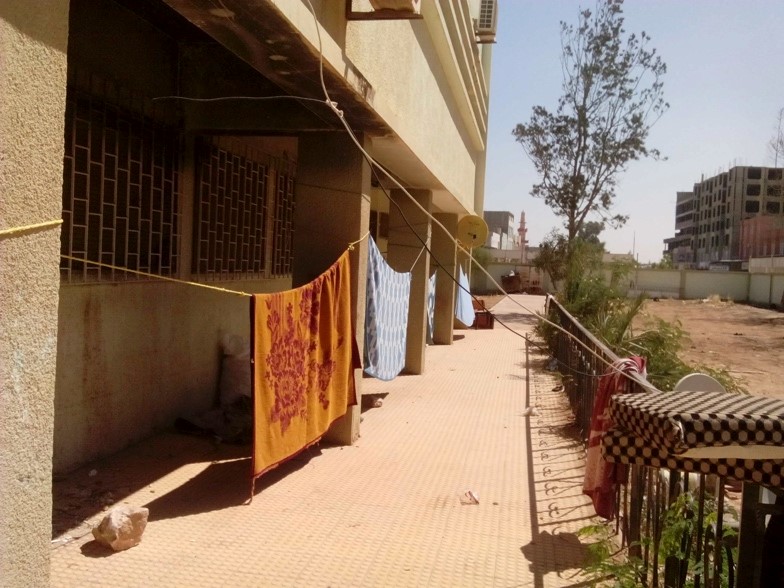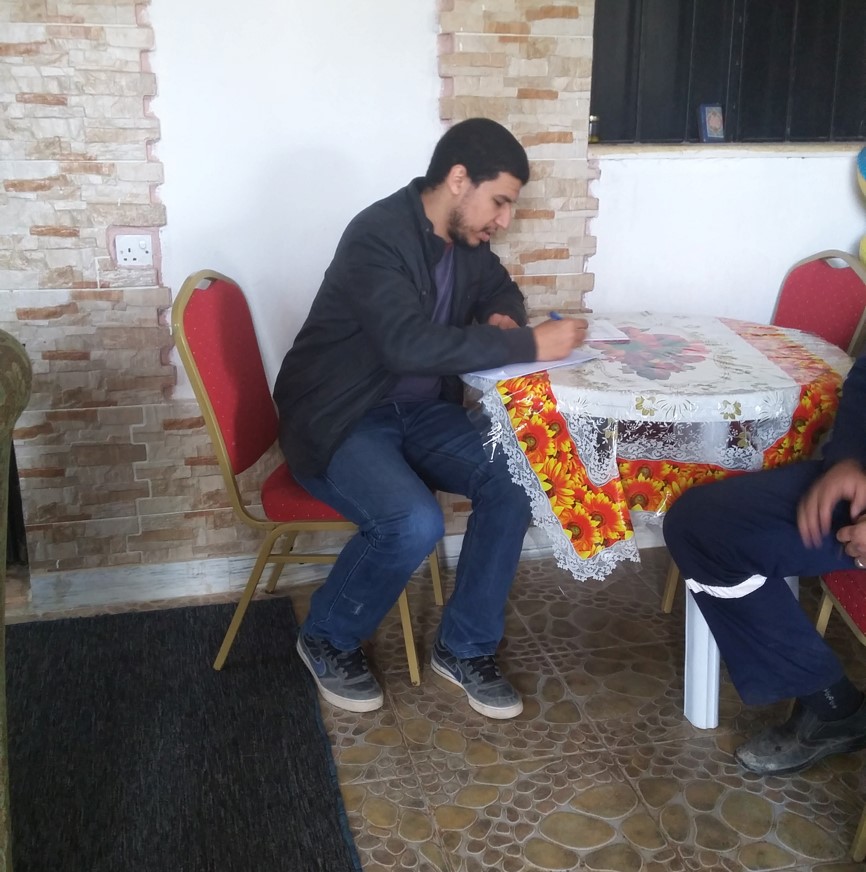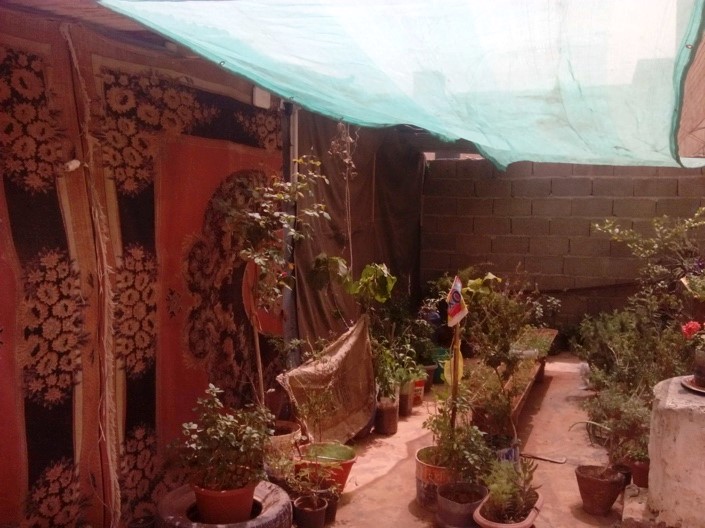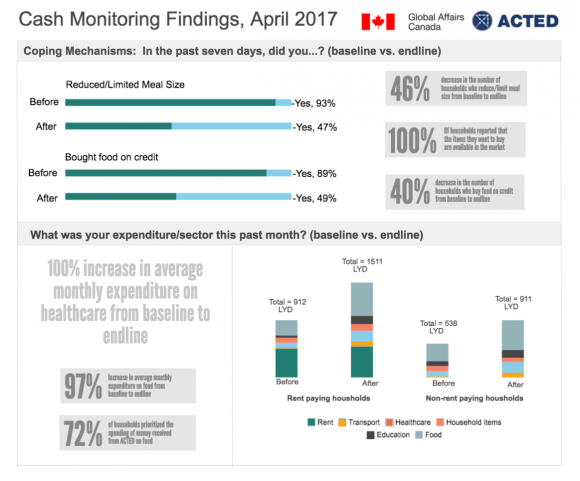
In October 2014, forces loyal to General Haftar launched Operation Dignity with supporters from within Benghazi, to rid the city of Islamic militia groups who by 2014 had full control of the city. As a result of the fighting, approximately 50,000 families left their homes, many moving in with family and friends initially, but as the conflict prolonged, local schools, uncompleted apartment complexes and state infrastructure project camp sites became a substitute for many displaced families. Today approximately 18,000 families still remain displaced mostly from Souq al-Howt and Sabri districts, while all other areas have been liberated, with many finally returning to their homes and beginning to rebuild their lives.
To reduce the vulnerability of the crisis-affected people, ACTED implemented an unconditional cash-based assistance to IDPs and vulnerable host community families in the Eastern Libya funded by Global Affairs Canada (GAC). The project aims to increase the ability to purchase essential and needed items of all kinds by IDP households targeting 1,000 beneficiaries with three installments of 200 LYD. To celebrate the closure of this project in April, ACTED visits beneficiaries to talk about their experiences and the impact the cash distributions are having on their lives.
The support from GAC allowed me to close the gap in my monthly expenditure.
Najia, a 48 year old Port’s Authority employee, divorced and living with five children in Souq al-Howt found her sixteen year old son, like many youths at the time, missing prior to Operation Dignity. After the start of military operations, Najia fled her apartment staying with initially friends but later renting her own place within one of Benghazi’s most densely populated public residential areas. Soon after, the Port Authority discontinued her salary and Najia without income or alimony took matters into her own hands selling all her life savings and bought a car. She started providing taxi services to mainly female clients. This risky and entrepreneurial woman impressed ACTED surveyors telling them how she made great efforts to cover the rent and put food on the table. Najia followed “the support from GAC allowed me to close the gap in my monthly expenditure covering for my daughter’s skin treatment and school supplies.”
ACTED Appraisal Monitoring and Evaluation (AME) team member recounted to others his admiration for the beneficiary “Najia’s courage impressed me, she choose not to be a victim and her entrepreneurial spirit should be an example to all.”

Money received helped to cover the children’s school supplies and some of grandpa’s medical tests.
Prior to the start of the conflict, Khalid with his wife and six children lived in the al-Qaryia Ceyeahiyia, a small seaside resort east of Benghazi used by low income families for habitations. After being displaced, Khalid moved around before finally settling on a relative’s rooftop where they built a couple of rooms out of mortar blocks and corrugated metal sheets. With big smiles, the family welcomes ACTED surveyors offering coffee and cookies while responding to the survey inquiries; “most of the money received helped and contributed to covering the children’s school supplies and some of grandpa’s medical tests.” Khalid spends his days driving kids to school and caring for a special garden on the rooftop. The family expressed its appreciation and is very thankful for the support.
The monthly transfers provide relief, but our troubles are now compounded by recent depreciation of the Libyan dinar that raised local prices.
During the visit, Ashia an internally displaced person, energetically welcomes ACTED and LIBAID staff into her small rented house with unpainted walls and dirt floor covered with old carpets and rags. Ashia, is a widow supporting a 20 year old daughter who dropped out of school after the start of the conflict and her youngest a 22 year old son who needs an amputation because of a combat injury. They left Souq al-Howt in October 2014 but her eldest son stayed and died fighting. Aisha explains her hardship, covering rent, health and food bills with debts accumulating at local groceries and portions of her monthly social security transfers used to cover an overdraft. Although Aisha puts a brave and dignified face, her slow and anxiety rubbing of hands tell of her difficulties stating “the monthly transfers provide relief, but our troubles are now compounded by recent depreciation of the Libyan dinar that raised local prices.” The LIBAID staffer provides information about ongoing distribution of household items and requests that Ashia follows up with LIBAID to receive more assistance.
We are grateful for the extra cash, which has helped us cover the extra cost of increased food prices and cover some of the medical bills.
In October 2014, the devastating effects of war resulted in Amal’s miscarriage as she fled her home in Souq al-Howt. Today, in a public school allocated to house IDPs, Amal and her husband invite ACTED and LIBAID staff into a 6X8m classroom turned studio apartment. The space is ordered, cleaned and divided for purpose. The couple speaks frankly about their daily routines. Amal’s husband, a non-Libyan national, seeks work and because they don’t pay rent and have no children, most of their income goes to food and fertility medical expenses. Amal’s husband expresses to ACTED’s surveyor his gratitude and appreciation; “we are grateful for the extra cash, which has helped us cover the extra cost of increased food prices and cover some of the medical bills related to fertility treatment.”

We are struggling to cover for our food and medicine
In another visit, ACTED staff meet Feturi, who rushed from his daily roundabout point seeking a day’s paying job to talk meet with them. Feturi, a factory worker who moved into a car garage six months ago, reworking the pipes and building divisions, arranged the place into two small rooms, a bathroom and a place for cooking meals. With five children nearby, Feturi complains to his guests “the factory shutdown operations when the war started and in the past eight months hasn’t paid any wages… we are struggling to cover for our food and medicine and unable to pay for the kids’ school supplies.” Feturi looking directly in the eyes of his guests adding with a little head shake “some may say the cash transfer is a water drop in a thirsty mouth but I feel it brings hope knowing people think of our needs.”

ACTED Assessment Monitoring and Evaluation Team Conduct Monitoring of Cash Programming
A key tool for learning is the pre and post cash distribution monitoring (PDM) surveys, designed to collect information on access to basic services, coping mechanisms, spending habits, and the quality of the cash distribution process. ACTED has compiled a factsheet highlighting some key PDM and market monitoring findings. The report echoes what beneficiaries have highlighted in their own personal stories, the humanitarian situation is serious, but ACTED cash distributions are going a long way in making life a bit easier for the families caught in the conflict.